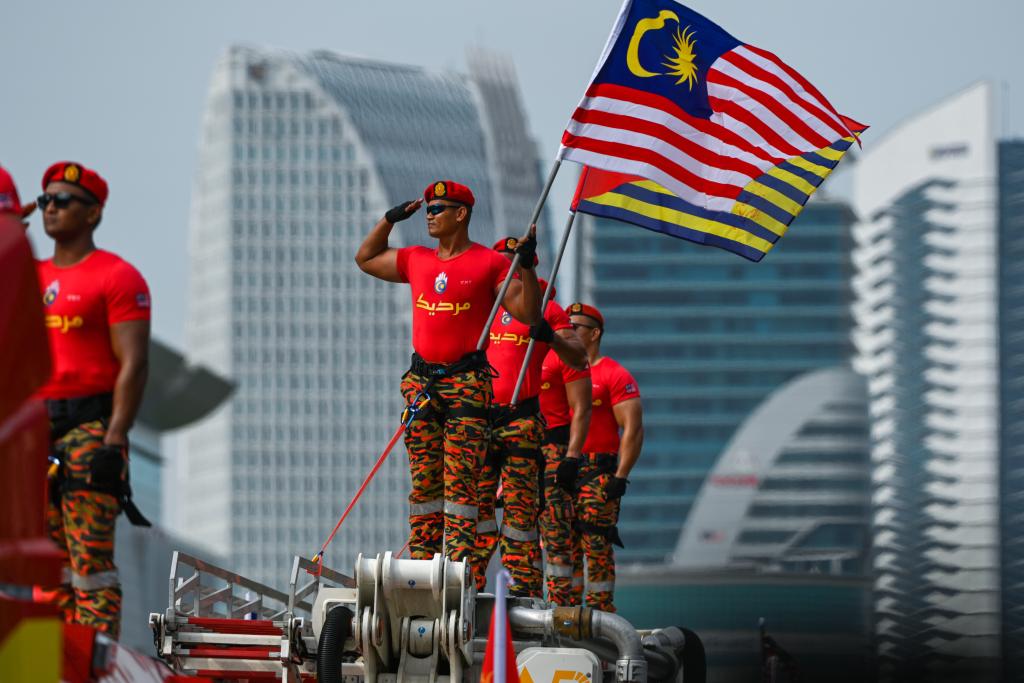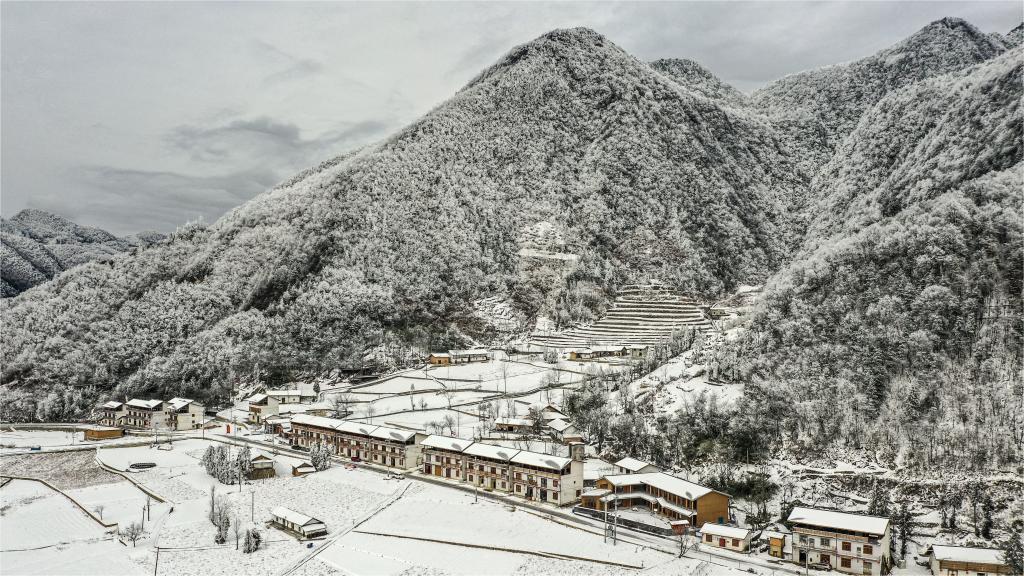West's fear of "Chinese hegemony" stems from its own brutal history

People walk past a foreign exchange office in Cairo, Egypt, on March 21, 2022. (Xinhua/Ahmed Gomaa)
The hysteria over "Chinese hegemony" reflects a narrow political mindset, while China continues to leverage its influence for the global good.
BEIJING, Jan. 27 (Xinhua) -- Western assumptions of "Chinese hegemony" reflect their own biases and illustrate a preconceived notion that any powerful nation will inevitably seek supremacy.
The public policy journal platform Pearls and Irritations observed that the West sees China through its own eyes. It ascribes to China the actions the West would take in similar situations.
It is not hard to apprehend this inaccurate but traceable motivation. "Western analysts reach back into European history for solutions to geopolitical contexts which are inevitably based on concepts of hegemony," as the platform notes.
Historically, many Western powers, including Spain, the Netherlands, Britain and France, established hegemonic dominance through military aggression, colonial exploitation and oppression. Their pursuit of hegemony often unfolded amidst conflicts and wars in past centuries.
Western hegemony came with colonialization and the tragic plunder of developing countries, as Pakistani scholar Ikramul Haq observed. However, the mindset of hegemonism did not die with the two World Wars, and some Western countries are still trapped in a hegemonic mindset.
While many developing countries have gained sovereignty after long years of struggles, they continue to face oppression and blockades under the Western-dominated international order. The specter of hegemony persists, shaped by a history of colonization and violence.

Firefighters attend a celebration of the 66th anniversary of Malaysia's independence in Putrajaya, Malaysia, Aug. 31, 2023. On Aug. 31, 1957, the then Federation of Malaya gained independence from British rule. (Photo by Chong Voon Chung/Xinhua)
Therefore, the belief that powerful countries tend to pursue hegemony has dominated the Western world.
However, Western observers must recognize stark distinctions between China and the West in culture, history and development trajectory.
Despite its strength, China refrained from military expansion and invasion. In the Ming dynasty, Chinese navigator Zheng He embarked on seven voyages, establishing friendly relations with more than 30 states, in contrast to the Western subjugation of other nations.
China's political philosophy prioritizes peace, harmony and global well-being. This aligns with its developmental principles and strategic concept of enhancing national strength without seeking hegemony, as Thai scholar Wirun Phichaiwongphakdee said.
Contrary to Western-centric paradigms, China embraces inclusivity, mutual respect among civilizations and every country's fair approach to development. Its pursuit of harmony helps foster a more inclusive world order defined by exchanges and mutual learning among civilizations.
When China and Nicaragua established a strategic partnership, Nicaraguan President Daniel Ortega said that China came to shake hands with Nicaragua. He noted that imperialist countries should learn from China and strive for peace. He also underscored China's significant contributions to helping people in developing countries achieve shared prosperity and raise living standards.

People welcome Chinese naval hospital ship Peace Ark in Indonesia's capital Jakarta, Nov. 10, 2022. Peace Ark is China's first hospital ship that has a capacity of over 10,000 tonnes. The ship arrived in Indonesia's capital Jakarta on Nov. 10 and has since provided free medical checkups for members of the public. (Photo by Peng Bingjie/Xinhua)
In a world where a hegemonic mindset still holds sway, China's pursuit of peaceful development offers valuable lessons to other nations. The country's rapid development has captured the attention of many interested in exploring new ways to advance human civilization.
"Chinese modernization offers many valuable lessons to developing countries," said Phichaiwongphakdee. He said the Belt and Road Initiative serves the interests of developing countries with its infrastructure cooperation and technological innovation and helps them participate in global governance.
Resonating with Phichaiwongphakdee, Gabriel Merino, adjunct professor at the National University of La Plata, Argentina, said that with hegemonism still rampant worldwide, China has successfully blazed a path of peaceful development, providing excellent experience and reference for other developing countries.
China's steadfast commitment to peace in the international community reflects its broader vision of global cooperation and shared prosperity. The country has no interest in seeking hegemony. The hysteria over "Chinese hegemony" reflects a narrow political mindset, while China continues to leverage its influence for the global good.
Photos
Related Stories
- Russia-West impasse hard to break due to deep divergence
- West imposes double standards on violation of int'l law: scholar
- Destruction of expired COVID-19 vaccines in Africa a shame for the West
- Conflict between China, West not inevitable: Harvard professor
- Any country that isolates China would end up isolating itself, experts say
Copyright © 2024 People's Daily Online. All Rights Reserved.









